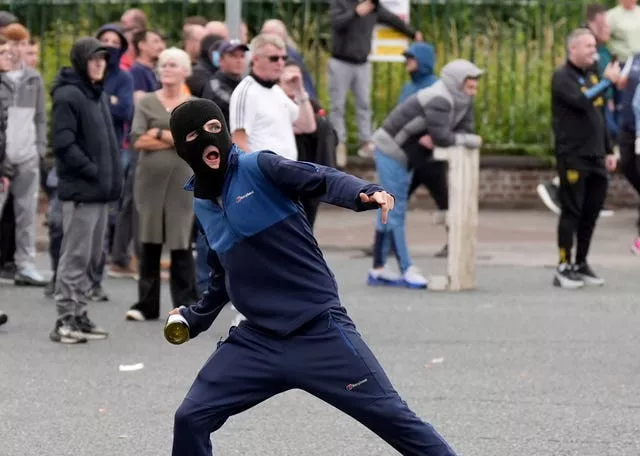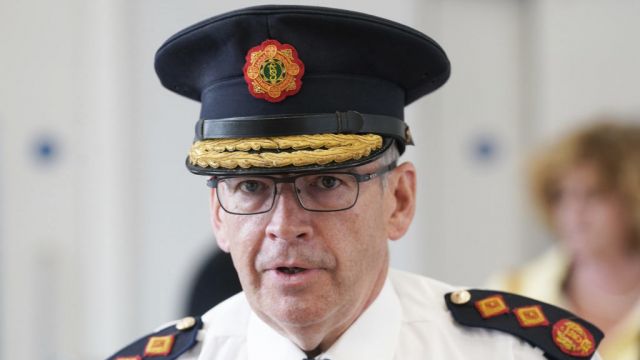Garda Commissioner Drew Harris has been publicly challenged about requests from gardai for media organisations to hand over images from anti-migration public order incidents in Ireland.
In response to concerns that the move was putting photographers covering riots in danger, Mr Harris said it was his responsibility to investigate criminal actions and gather evidence.
Recently, several news organisations, including the PA news agency, have received requests from gardaí for images as part of investigatory efforts to identify perpetrators after violence flared in north Dublin.
Last week, gardaí came under attack and fires were set several times at the former Crown Paints factory in Coolock which has been earmarked as housing for asylum seekers.

The latest requests follow the garda’s pursuit of court orders to seize images taken by media photographers during riots in Dublin last November.
Following a meeting of the Policing Authority on Thursday, Mr Harris was asked by the media about the policy of pursuing photographers’ images.
The commissioner said: “My obligation is to thoroughly investigate actions which are criminal in their nature.
“I have a lawful and legal and legislative responsibility to do all I can to gain evidence.”
Mr Harris said the Gardaí would pursue the images by seeking permission or else gaining a court warrant.
Challenged that this could lead to media organisations not covering public order situations, Mr Harris responded: “It is my responsibility to investigate and to bring offenders to justice and that is through obtaining whatever evidence I can.”

The PA news agency was one of a number of outlets which was compelled to hand over pictures taken of the Dublin city centre disorder on November 23rd 2023 after investigating gardai secured an order from a Dublin District Court judge.
PA’s editor-in-chief, Pete Clifton, voiced strong objections and warned of the safety implications for members of the media covering such incidents if a perception is created that content they are capturing will subsequently be used as evidence in criminal justice proceedings.
The NUJ has also previously warned over the implications of media being made to hand over images.







